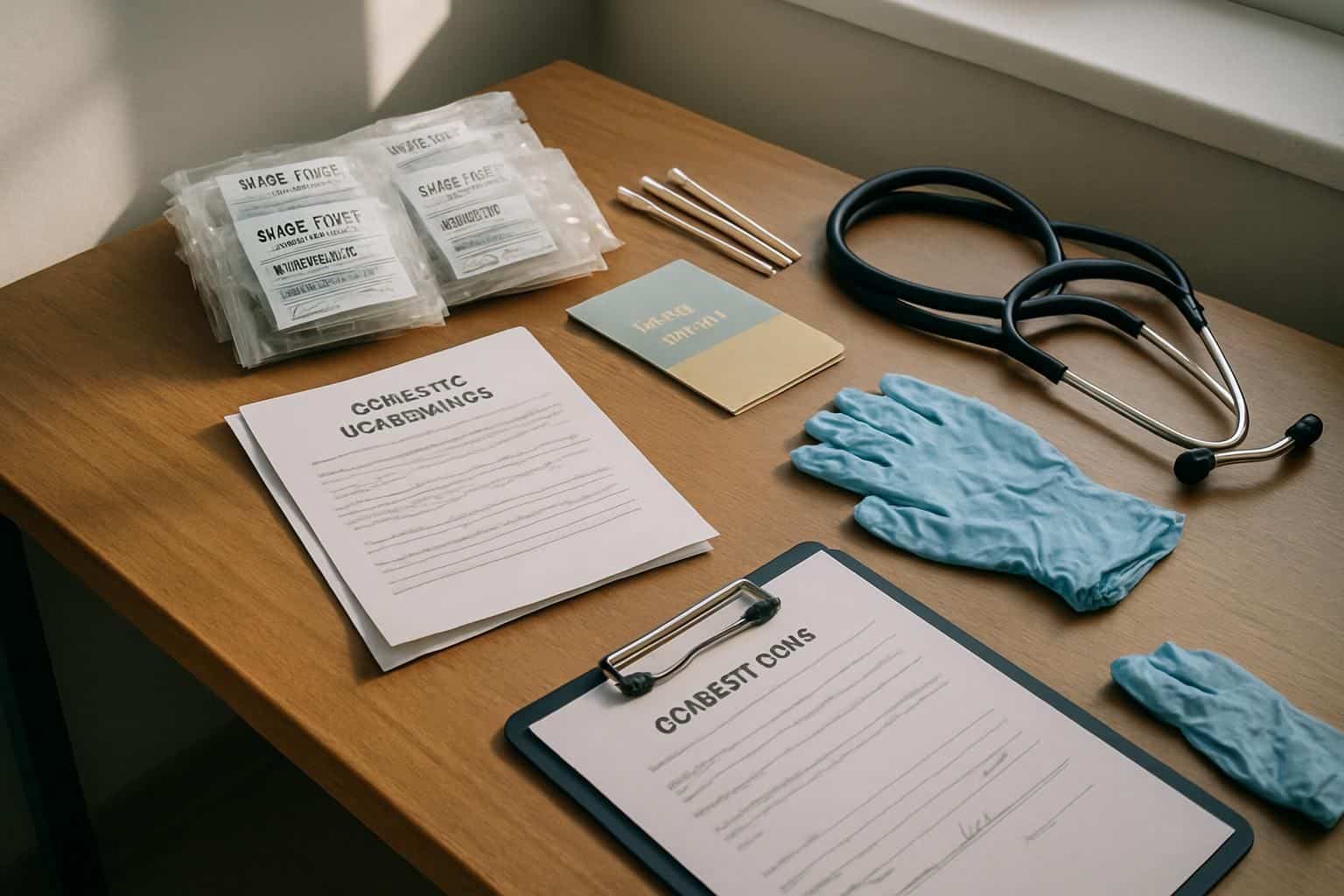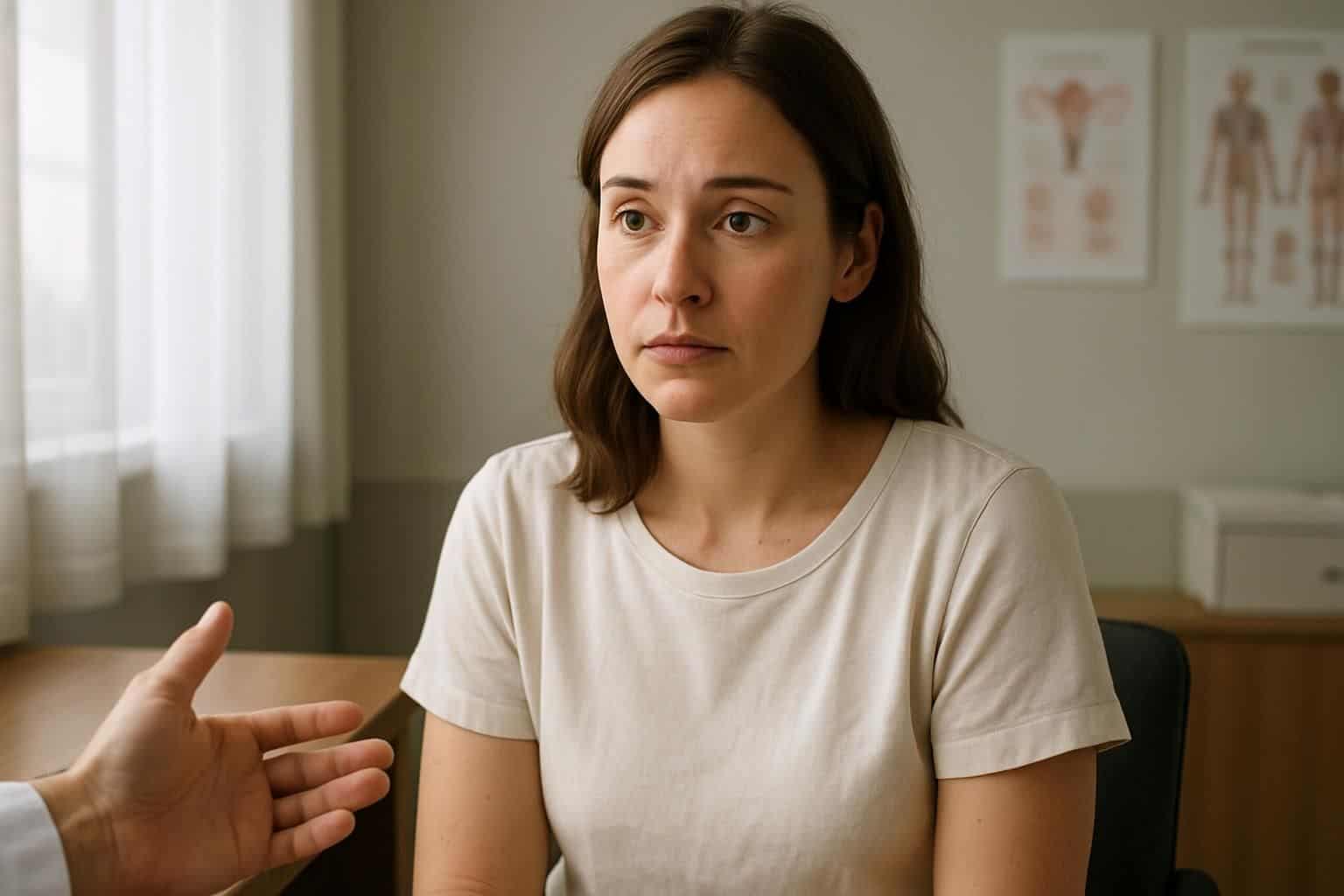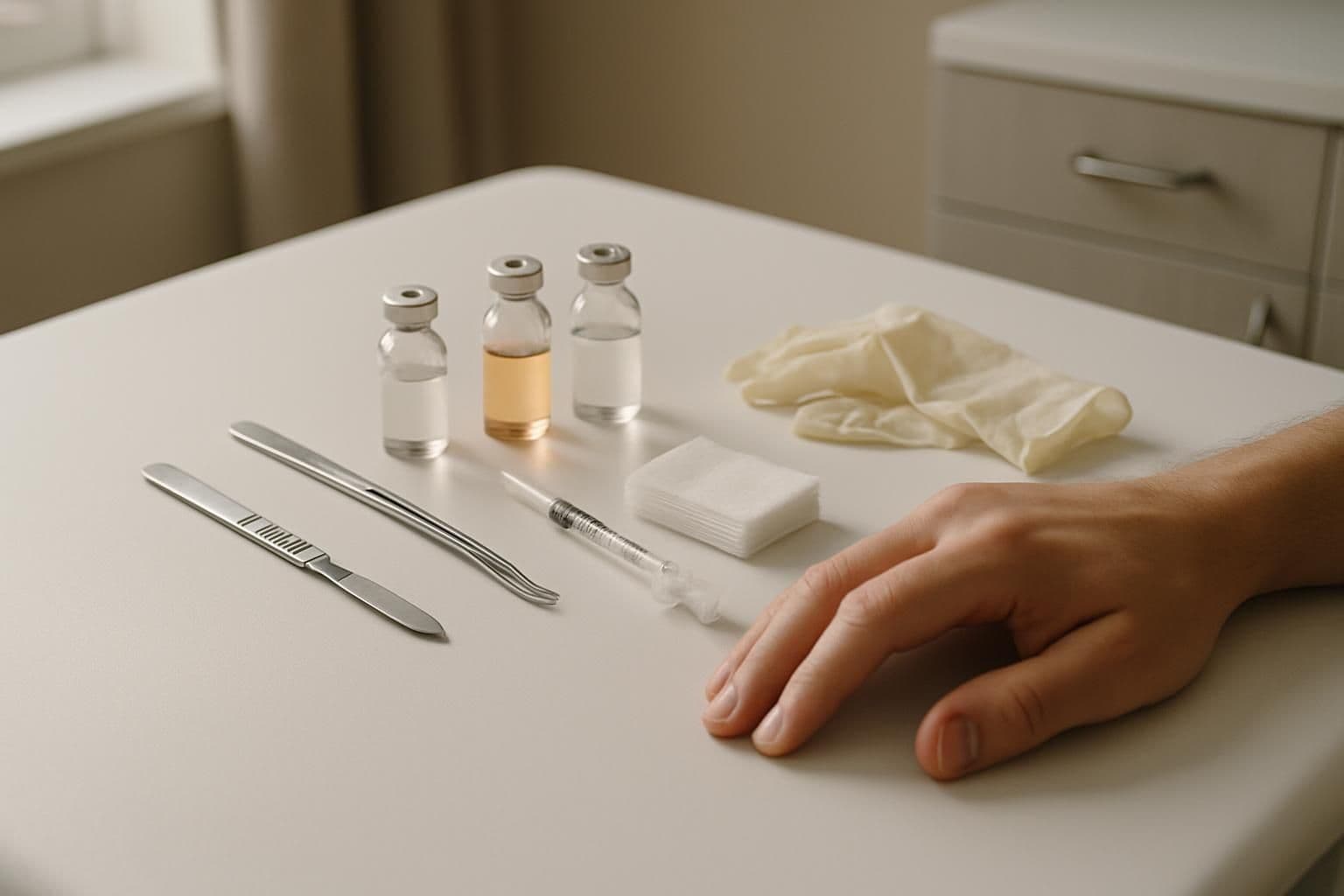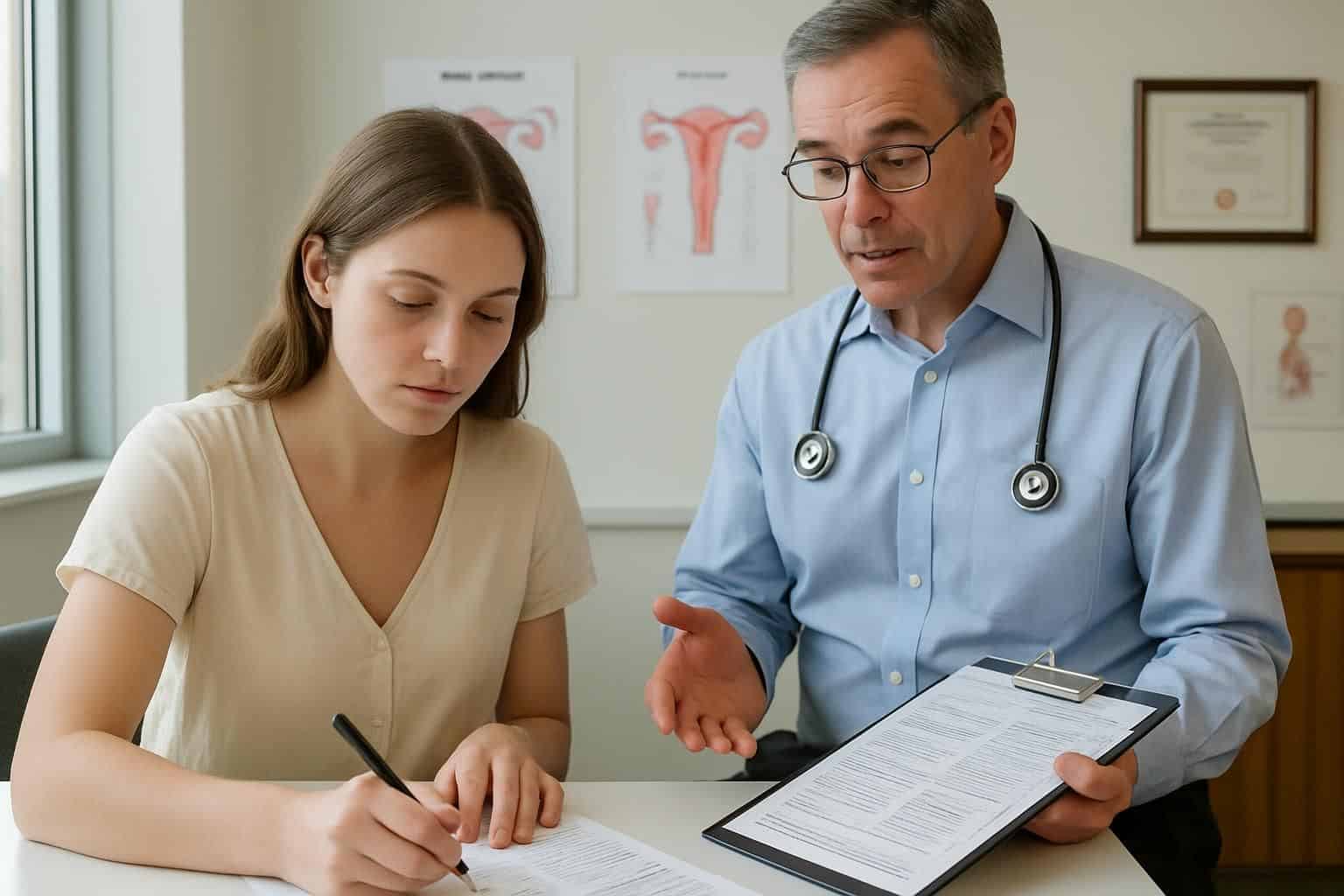Thinking about egg donation but confused by all the details and demands? You might be surprised that egg donors requirements include being between 21 and 30 years old and having good overall health.
This post will break down eight key facts clearly, helping you easily understand what’s needed to become an egg donor. Keep reading to find out more!
Key Takeaways
Egg donors need to be between 21 and 30 years old, maintain a BMI from 18 to 29.4, and have regular menstrual cycles.
Clinics prefer donors who don’t smoke or use drugs, and any tattoos or piercings should be at least one year old.
Medical tests include fertility exams, genetic screening for over 100 conditions, plus a psychological assessment lasting two to three hours.
Donation requires four to eight clinic appointments spread across three to four weeks—ending in a short, 30-minute egg collection procedure.
First-time donors typically receive around $7,000; returning donors may get up to $8,000 per donation, while certain programs offer as much as $60,000 after multiple cycles.
Table of Contents
Basic Requirements for Egg Donors
Egg donors must meet strict health and age standards before they can join a donor program. These basic rules ensure the safety of both donors and future parents while boosting the chances of success.
Age Range and Health Standards
Most fertility clinics welcome IVF egg donors who are between 21 and 30 years old.
This age group gives the ideal mix of mature decision-making and strong egg quality. Your overall health, including fully functioning ovaries, matters too. A stable, healthy BMI—typically somewhere between 19 and 29—helps ensure you can safely manage hormone treatments.
Consistent menstrual cycles also indicate your reproductive system is healthy enough for donation.
The quality of eggs peaks in a woman’s twenties, making this the ideal window for donation.
Clinics carefully review your family’s medical history to screen for genetic conditions that could affect future babies. Most clinics expect you to have a high school diploma or higher.
You will likely need to live within 90 minutes of their location. Being close enough ensures you can easily get to scheduled clinic appointments. Before acceptance, make sure you fully understand the medical tests and psychological screenings the clinic will require.
Regular Menstrual Cycles
Egg donation programs rely on donors having consistent menstrual cycles. Your periods need to arrive every 25 to 35 days, without skipping or delays. Regular cycles show your reproductive system functions well, making fertility treatments more effective.
During the screening, the clinic reviews your monthly cycle history closely—to ensure your ovaries release eggs regularly. Irregular cycles could hint at hormone imbalances or underlying health concerns.
These problems can impact egg quality and donor suitability.
Throughout the donation process, fertility clinics carefully monitor your menstrual patterns. You can’t donate eggs if you’re pregnant or currently breastfeeding. Certain birth control methods—like Depo-Provera injections—will prevent you from donating.
Many donors still take birth control pills early in the process. The clinic will also test your ovarian reserve, checking that enough healthy follicles are available. Genetic screenings can identify inherited conditions that might impact your eggs or future offspring.
Body Mass Index (BMI) Guidelines
Fertility clinics typically require egg donors to keep a Body Mass Index (BMI) between 18 and 29.4—and there’s a good reason for this guideline. Your BMI directly influences your body’s reaction to fertility medications during egg donation.
Personally, during my own donation experience, I noticed women with higher BMI often needed extra doses of hormone injections, just to adequately stimulate their ovaries. On the other hand, donors who have extremely low BMI levels face a higher chance of developing ovarian hyperstimulation syndrome (OHSS)—a painful medical situation where ovaries swell and fluid leaks out.
That’s why most clinics measure your height and weight at your physical exam to calculate your BMI before approving you to donate eggs.
Maintaining a healthy weight makes the egg retrieval process much safer for you. Many women actively strive to reach their ideal weight before applying for donation programs. Some women even choose to become a muscle mommy, using targeted fitness plans to support reproductive health.
Once your BMI meets the clinic’s standards, you’ll move on to a thorough genetic screening to ensure no harmful diseases pass along to future kids.
No History of Hereditary Diseases
Egg donation clinics set strict rules for genetic background, ensuring donors have no family history of hereditary conditions. This rule keeps future babies safe from genetic illnesses passed down through family lines.
Donors submit a detailed family medical record covering three full generations—that means parents, siblings, grandparents, aunts, uncles, and even cousins. Alongside that history, clinics perform genetic screenings to catch hidden conditions like cystic fibrosis or fragile X syndrome.
Some genetic illnesses can quietly pass through families, showing no signs at all in the donor.
The greatest gift you can give is a healthy genetic foundation. Your three-generation family history reveals more about your donation potential than you might realize.
Medical and Psychological Screening

Medical and psychological screening helps clinics find healthy egg donors through blood tests, genetic checks, and mental health talks – learn what to expect during these vital exams and how they protect both donors and future families.
Fertility and Genetic Testing
Egg donors go through several health tests to confirm their fertility status. Doctors evaluate hormone levels and egg quality using blood tests and ultrasounds. Clinics even provide free genetic testing as part of this procedure—checking for over 100 inherited conditions.
That way, future children stay safe from any family-linked genetic disorders. I went through genetic screening myself, and honestly, the blood draw turned out faster and easier than I expected.
Your reproductive health needs to be in good shape for donating eggs. The FDA mandates that all donors get checked for common infectious diseases such as HIV, hepatitis, and sexually transmitted infections.
These screenings keep both you and future babies healthy and protected. Many women actually find these health evaluations useful, even if they decide not to move forward with donation.
Next up, you’ll have a psychological assessment to help confirm you’re emotionally prepared for donating eggs.
Psychological Evaluation
All egg donation programs require donors to complete a mental health evaluation. Usually, this screening involves a clinical interview and a standard test, lasting around two to three hours.
During this step, mental health experts make sure donors understand the emotional impact and responsibilities that come with donating eggs. In my session, the counselor asked about my family background, current stress levels, and why I chose to donate.
They wanted to confirm I felt comfortable with my decision and wasn’t feeling pressure from anyone else.
This mental health check safeguards donors and recipients involved in third-party reproduction. Counselors pay attention to signs of anxiety, depression, or other emotional concerns that might complicate egg donation for you.
They also chat openly about how you might feel down the road—knowing there are genetic children out there being raised by other families. The goal of this process isn’t to judge your choices, but rather to support you and confirm you feel ready for this big step in your reproductive life.
Lifestyle and Behavioral Criteria

Your daily habits matter when you apply to donate eggs, from staying smoke-free to limits on body art – click to learn what else egg donation programs check for in their ideal donors.
Non-Smoker and Drug-Free Lifestyle
Egg donation clinics expect donors to stay completely smoke-free and drug-free. Smoking cigarettes or vaping harms eggs and lowers their overall quality—and this can seriously limit the success of IVF treatments.
During the screening process, fertility centers perform nicotine and drug tests; if the results come back positive, donors face immediate disqualification. Most clinics ask women to quit smoking at least three months before starting the egg donation procedure.
Maintaining good physical and mental health is another essential factor for egg donation. Using recreational drugs or even certain prescription medications can damage reproductive health and leave eggs unusable.
I once spoke with a potential donor forced to postpone her application for six months, just so her body could clear nicotine completely. She admitted to me candidly, “I never realized how smoking affected my fertility until I tried to become a donor”.
Fertility specialists now frequently use advanced tests to detect substance use—even casual or occasional use.
The quality of donated eggs directly reflects the donor’s lifestyle choices. A clean, healthy lifestyle creates the best possible gift for families struggling with infertility. – Dr. Sarah Reynolds, Reproductive Endocrinologist
Limitations on Tattoos and Piercings
Fertility clinics typically have clear guidelines on tattoos and piercings for egg donors. Most require any body art to be at least one year old before starting the donation process.
This waiting period lowers the chances of infections linked to fresh tattoos or new piercings. During my donor application, the staff even examined my small wrist tattoo, insisting I show proof that it was over three years old.
They explained new tattoos and piercings carry potential infection risks—which might interfere with egg donation procedures.
If you’ve gotten body art within the past year, you’ll likely need official records from a licensed tattoo or piercing professional. Clinics request these documents to confirm exact dates and proper hygiene standards.
This policy helps keep both donors and recipients safe throughout the IVF process. During your physical exam, doctors will closely inspect tattoos and piercings to make sure they’re fully healed.
Some fertility experts might even discuss your future tattoo and piercing plans, since additional procedures during ovarian stimulation or egg retrieval could create complications.
Common Disqualifications for Egg Donation

Certain medical issues like PCOS, genetic disorders, or past cancer treatments can stop you from donating eggs – read on to learn which health factors might affect your chance to help others build families.
Medical Conditions
Several health concerns can stop you from donating eggs. Conditions affecting fertility—like PCOS and endometriosis—often disqualify applicants, since they impact hormones and egg quality.
Doctors usually screen for these during your first appointment through blood tests and ultrasounds. Your family’s medical background matters, too. Genetic conditions that could pass to a child typically remove you from donor lists.
Fertility centers commonly turn away people who have diabetes, autoimmune conditions, or past blood clots, due to risk factors during donation. They also check applicants for sexually transmitted infections, as these may harm reproductive health or pass to someone receiving eggs.
You should also find out about medications or treatments you’re currently using that might affect whether you’re eligible.
History of Certain Medications or Treatments
Certain medications can impact your chance to become an egg donor. Fertility clinics pay close attention to Depo-Provera use, since this birth control injection can stop ovulation for many months, even after discontinuing it.
Your body needs regular menstrual cycles for egg donation success. Other birth control options—like Implanon, Nexplanon, and NuvaRing—might need to be removed before the donation begins.
Being pregnant or breastfeeding automatically prevents you from donating eggs. Your body needs recovery time after childbirth and nursing. Fertility clinics also look closely at previous treatments for cancer or autoimmune diseases.
These treatments could affect egg quality or create risks during hormonal treatment. Screening carefully checks donors and helps protect families who receive the eggs.
The most important aspect of egg donation is ensuring the health and safety of everyone involved in the process, from the donor to the recipient family. – Dr. Sarah Miller, Reproductive Endocrinologist
The Egg Donation Process

The egg donation process starts with an online form and ends with a quick egg collection – let’s walk through each step to help you decide if this path fits your life goals.
Completing the Application and Profile
Your egg donation journey starts easily—with a short online form. Most clinics provide an initial application that takes just three to five minutes to fill out. This quick form helps them see if you meet basic requirements.
After passing, you’ll move on to a longer questionnaire, which usually takes around 20 to 40 minutes. It includes questions about your health history, family background, and personality traits.
I worked on mine during my lunch breaks, which made the whole thing feel simple and stress-free.
Next, your profile becomes part of a donor database, allowing potential parents to browse your information. Many clinics post photos, education background, and special skills to help future parents choose a good match.
Your completed application serves as an introduction to couples who are turning to fertility support to start a family. Most programs keep the steps easy to follow, with helpful instructions and friendly staff ready to help whenever you need.
Medical Appointments and Hormone Treatments
Egg donors typically attend around four to eight medical visits during their donation cycle. These appointments cover initial health assessments, blood work, and ultrasounds to closely check follicle growth.
Hormone treatments generally last three to four weeks, requiring donors to take medicine that encourages egg production. Unlike a regular menstrual cycle, these fertility medications allow several eggs to mature simultaneously, rather than just one.
Finally, donors undergo a brief egg retrieval procedure, usually lasting about 30 minutes, under IV sedation at a fertility clinic. It’s outpatient—meaning most women head home afterward, the very same day.
Common side effects from hormone medication include mild bloating or breast sensitivity, though these typically disappear within a few days following the procedure. The entire egg donation process demands dedication, but fertility experts closely support donors every step of the way.
Egg Retrieval Procedure
The egg retrieval procedure usually lasts about 30 minutes, from beginning to end. During this time, a fertility doctor uses ultrasound to carefully guide the removal of mature eggs from your ovaries.
Most donors typically produce around 10 to 30 mature eggs per cycle. The specialist will give you medicine to help you stay relaxed and comfortable. Many clinics offer a gentle form of anesthesia, so you shouldn’t feel any discomfort.
Recovery tends to happen pretty fast for most people. You’ll likely need just one day off from work or school to rest afterward. Some women notice mild symptoms, like stomach cramps or breast tenderness, for a short while.
Clinic staff will clearly guide you on relaxing, taking medications, and which physical activities you’ll have to skip. Your body usually returns to regular menstrual cycles within a few weeks after finishing the IVF treatment.
Compensation and Confidentiality
Egg donors can earn between $5,000 to $10,000 per donation cycle, with some agencies offering bonuses for specific traits or repeat donors. Your personal data stays protected through strict privacy agreements, giving you control over how much the recipient family knows about you.
Financial Compensation
Donating eggs can offer meaningful financial rewards for eligible women. For the initial IVF cycle, new donors typically earn around $7,000 for their commitment and effort. For repeat donations, women can receive as much as $8,000 per cycle.
Fairfax EggBank goes even further—donors there can earn up to $60,000 by completing multiple donation cycles. Many women find this money helpful for college tuition, debt reduction, or building savings, all while making a huge difference for others facing fertility challenges.
The compensation process itself is straightforward and easy to understand. Most clinics don’t pay donors the entire amount at once; payment arrives in stages throughout the donation cycle.
Partial payments typically come after important steps—like finishing medical screenings, beginning hormonal treatments, and finally, completing egg retrieval. By paying this way, clinics ensure donors remain engaged throughout the entire donation journey, fairly rewarding them for assisting families struggling with infertility issues.
Confidentiality and Privacy Policies
Privacy is a big deal in egg donation—and the law agrees. Under HIPAA regulations, egg donors count as patients, so personal data gets strong protection. Fertility clinics strictly guard your private information against anyone trying to see it without permission.
People receiving eggs will know basic details like your hair color, height, or education, but they’ll never get your name, phone number, or address.
Medical records, genetic test results, and mental health evaluations—all stay totally confidential, thanks to federal security rules. Most fertility centers now use secure electronic systems to store sensitive health information, limiting exactly who can open your files.
Soon, we’ll explore how egg donation may evolve over the next few years, as advanced medicine reshapes fertility practices.
How Will Egg Donation Criteria Evolve in 2025?
Egg donation guidelines are set for major updates by 2025. The donor age limit could rise to 32, opening the door for more women to participate. First-timers might earn above $7,000, while repeat donors could see even higher payments for their efforts.
Clinics will keep medical screening tight, protecting both egg donors and hopeful families. Fertility centers will still run blood tests and carefully review family histories to spot any genetic risks early.
Donors will also have greater say over their privacy, while basic safeguards remain solidly in place. Certain programs may even allow limited contact between donors and families, as long as both parties agree.
Clinics plan to improve referral rewards too, offering bonuses or gifts if you bring in new donors. My friend Sarah got $500 just last year simply by referring two classmates to her fertility clinic.
Better educational resources about donation risks and benefits will appear, making sure women fully understand their reproductive choices.
People Also Ask
What are the basic egg donor requirements?
Egg donors are healthy women, ages 21-32. They must have strong overall health and no family history of genetic disorders. Candidates undergo medical evaluations and complete mental health assessments with qualified professionals.
Can I be an egg donor if I use birth control?
Yes, you can, but timing is key. Birth control pills, NuvaRing, and IUDs are usually fine to use before donation. The fertility center may require you to stop hormonal injections, contraceptive implants, or Depo Provera during the donation process.
How does the egg donor application process work?
First, you submit an application about your health history and personal background. Next steps include genetic testing and a medical exam. Once approved, your profile enters a donor database for potential recipients to choose from.
Will egg donation affect my future fertility?
Egg donation generally won’t affect a woman’s fertility later in life. Each month your body produces multiple eggs, and donation uses just a portion of those eggs. Most women who donate eggs later have successful pregnancies, if and when they’re ready for a family.
Do egg donors help women with premature ovarian failure?
Yes, egg donors can help women facing premature ovarian insufficiency—along with survivors of cancer and anyone unable to conceive naturally. Doctors use donated eggs for in vitro fertilization (IVF), offering these women a chance to carry their own pregnancy.
What medical tests do egg donors undergo?
Egg donor screenings include blood tests, pap smears, and evaluations for infectious diseases. Doctors perform ultrasounds to check reproductive organ health and measure hormone levels. These screenings confirm the donor’s health and ensure she produces healthy eggs suitable for IVF.
References
https://www.fairfaxeggbank.com/egg-donor-requirements/
https://www.hatch.us/egg-donor-qualifications
https://www.ivfmd.com/blog/egg-donor-requirements-what-you-need-to-know-before-donating (2024-12-20)
https://www.fairfaxeggbank.com/blog/egg-donation-why-does-bmi-matter/
https://fertile.com/egg-donation-facts-things-you-should-know-before-donating-your-egg/
https://familyinceptions.com/egg-donations-disqualifications/ (2024-11-15)
https://www.fertility-miracles.com/PDFs/Fertility_Treatments_What_you_need_to_know.pdf
https://www.cofertility.com/freeze-learn/disqualifications-for-egg-donation-an-overview
https://www.fairfaxeggbank.com/blog/8-tips-for-completing-your-egg-donor-application/ (2024-09-10)
https://www.hatch.us/egg-donation-cycle
https://pubmed.ncbi.nlm.nih.gov/17126180/
https://elevatebaby.com/blog/are-egg-donors-are-protected-as-patients-under-hipaa/
